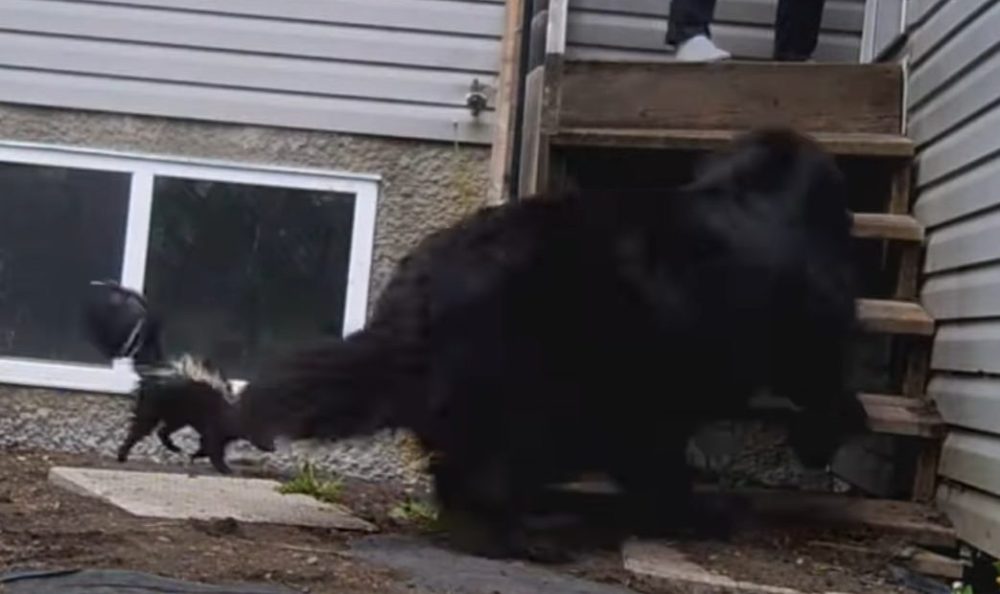Rabid skunk attack prompts warnings
Advertisement
Hey there, time traveller!
This article was published 28/06/2024 (559 days ago), so information in it may no longer be current.
Earlier this month, two attacks were reported of dogs being attacked by overly-aggressive skunks next to Birds Hill Provincial Park.
The second attack hapened at a RM of Springfield home, where a Newfoundland dog was attacked feet away from Ashley Bartel’s home.
A Facebook post from Bartel showed videos of the skunk latching onto the leg of her dog before running off and later being killed.

“After the attack, we lost sight of it, but then our family came over and helped us search for over an hour. We confirmed no babies under the house,” said Bartel’s Facebook post. “Eventually we found it, eliminated it and had it tested where it came back positive for rabies.”
The report said skunks are known to sometimes be out in the day during spring to look for food for their offspring or if they are hungry. However, increased aggression is a sign of the disease.
“Skunks are particularly active in the spring and early summer, but strange behaviour at any time of the year can be a sign of rabies in a skunk,” said an email from a provincial spokesperson. “Most rabies-positive cases in Manitoba are skunks or animals who have contracted rabies from a skunk.”
“Skunks can also get sick from other diseases (like distemper or avian influenza), which sometimes have symptoms similar to rabies.”
Bartel said her dog was fine after the attack and the skunk couldn’t get past the fur. She also reminded people on her post to keep safe.
“Be very careful, be vigilant for any abnormal wildlife behaviour to help keep your family, neighbours, pets and livestock safe.”
The provincial spokesperson said keeping your pets up to date on vaccinations is important to keep your pets safe. Potential animal exposures can be reported to the Manitoba Agriculture Rabies Line at 204-470-1108 and should seek immediate medical attention.
Rabies is most common in skunks but it is also found in raccoons, foxes and bats.
